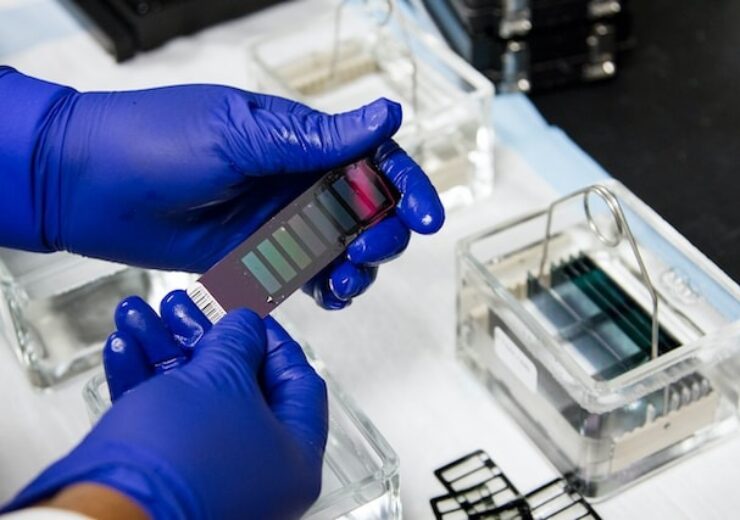Through the acquisition, PacBio aims to integrate its Sequencing by Binding (SBB) short-read chemistry into Apton’s high throughput instrument, which uses advanced optics and image processing, combined with novel clustering and chemistry

Apton develops short-read sequencer platform. (Credit: National Cancer Institute on Unsplash)
US-based biotechnology company Pacific Biosciences of California (PacBio) has signed an agreement to acquire Apton Biosystems, for total consideration of up to $110m
Apton is a medical technology company engaged in developing a high throughput short-read sequencer, which enables the sequencing of billions of clusters of DNA on one flow cell.
The short-read sequencer is being developed using advanced optics and image processing, combined with novel clustering and chemistry.
Through the acquisition, PacBio aims to integrate its Sequencing by Binding (SBB) short-read chemistry into Apton’s high throughput instrument to provide a differentiated high throughput sequencer.
Under the terms of the agreement, Apton shareholders will receive an upfront consideration of about $85m, and around 6.3 million shares of PacBio common stock.
In addition, PacBio will pay $25m in stock, cash, or a combination of stock, subject to generating $50m in revenue with a high throughput sequencer using Apton’s technology.
PacBio president and CEO Christian Henry said: “I am impressed with Apton’s progress in developing a novel, high throughput sequencing platform that has the potential to deliver very low-cost sequencing at tremendous scale.
“By integrating our highly accurate SBB technology with Apton’s advanced optics and image processing capabilities, PacBio expects to commercialize a high throughput short-read platform faster than we had planned.
“This acquisition is consistent with our strategy to develop a multiproduct short-read sequencing portfolio alongside our long-read sequencing platforms, giving us an opportunity to reach an even greater portion of the multi-billion-dollar sequencing market.”
In a separate development, PacBio has commenced the commercialisation of its Onso Short-Read Sequencing System
The Onso system is designed to provide extraordinary accuracy through its novel sequencing by binding (SBB) chemistry in a user-friendly and flexible benchtop platform.
It is designed to deliver 400 to 500 million reads during a 48-hour sequencing cycle.
PacBio is planning to launch library preparation solutions to support sample types and library conversion kits, allowing existing third-party libraries to be sequenced on the system.
The Translational Genomics Research Institute (TGen), a part of City of Hope National Medical Centre, is among the first customers to receive the Onso system.
Christian Henry said: “When we announced the Onso platform last year, I knew it would be a game changer for genomics. We believe PacBio is the only company to offer both highly accurate, native short and native long-read sequencing technologies.
“As a result, we believe this uniquely positions us to offer more complete solutions to our customers’ challenges and help researchers unlock novel insights in oncology and disease research, among other areas.
“I want to thank the Broad Institute of MIT and Harvard, Corteva Agriscience, and Weill Cornell Medicine for their invaluable feedback, helping us to improve this cutting-edge system and bring it to market.”
